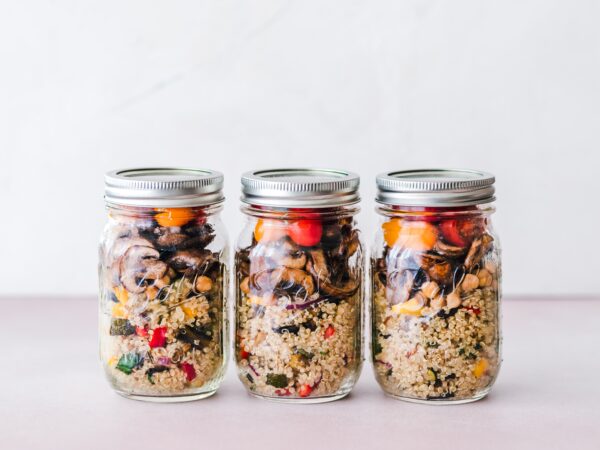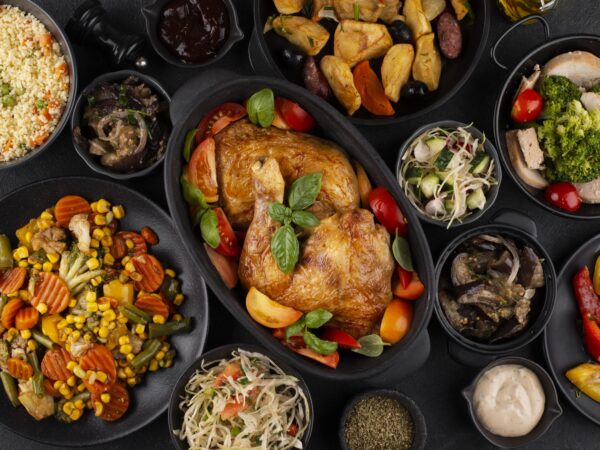Food wastage has become an increasingly growing concern for households around the world. Not only is it a financial strain, but it also has significant environmental and social impacts. The food that is thrown away contributes to greenhouse gases that cause climate change. In addition to that, there are hundreds of millions of people around the world who live in hunger, and the food that we waste could have been used to feed these people. The good news is that cutting down on food waste is easy and does not require any major lifestyle changes. Here are 5 simple ways to reduce food waste in your kitchen.
1. Plan Your Meals Ahead of Time
One of the major reasons that food goes to waste in the kitchen is because people often buy more than they need. It is important to make a meal plan in advance and only purchase the ingredients that you need for each meal. This can save you a significant amount of money and give you a clear idea of what is in your fridge and pantry.
By planning your meals ahead of time, you can make use of certain ingredients multiple times. For example, if you cook roast vegetables on Monday night, you can use the leftover veggies as a base for a salad on Tuesday. This way, you can make use of leftovers before they go bad.
2. Get Creative with Leftovers
Leftovers are often thrown away because people do not know what to do with them. However, there are many creative ways to use leftovers and turn them into a new meal. For example, leftover rice can be turned into fried rice, or leftover chicken can be turned into a hearty stew.
You can also freeze leftovers and use them at a later date. If you are not interested in eating the same meal twice in a week, pack the leftovers for lunch the next day, or freeze them for future use. This reduces the amount of food that goes to waste and saves you money.
3. Store Your Food Correctly
Correct food storage is essential to reduce food waste in your kitchen. Always keep your perishable items, such as fruits, vegetables, and meats, in the fridge. Make sure that your fridge is set to the correct temperature, which is between 35-40 degrees Fahrenheit, as this will prevent food from spoiling too quickly.
Additionally, make use of storage containers to keep your food fresh for longer. Some foods, such as bananas and avocados, will ripen quicker if left in a paper bag, while other items such as lettuce won’t last as long if stored in a plastic bag. Understanding how to store your food correctly can help it last longer and reduce wastage.
4. Use Everything from Your Ingredients
When you are cooking with ingredients, always use everything from it. For example, when you buy carrots, use both the root and the stem to make a carrot salad or use the stem in a vegetable broth. Similarly, if you buy a whole chicken, make sure to use the bones to make chicken broth.
Furthermore, make sure that you use the “ugly” produce as well. People often throw away produce that does not look perfect, but they are still good to eat. Use these fruits and vegetables in your recipes instead of tossing them out.
5. Purchase Only What You Need
One of the easiest ways to reduce food waste is by purchasing only what you need. Every time you go grocery shopping, make a list of items that you need and stick to it. This will help you avoid impulse purchases that often lead to wastage.
Additionally, consider buying in bulk only if you know you are going to use it within a certain period. Buying in bulk only saves money if you can consume it all before it spoils. If you do over-purchase, consider donating the items to a local food bank or shelter, where they can be used to feed those in need.
Conclusion
Reducing food wastage is possible with small changes in habits and practices. By implementing these 5 simple ways, you can significantly reduce food wastage in your kitchen. Meal planning, being creative with leftovers, correct storage, using everything from your ingredients, and purchasing only what you need all help to reduce food wastage. Not only is this good for your wallet, but also for the environment and for those in need. Let’s all do our part in reducing food waste and creating a sustainable future.











